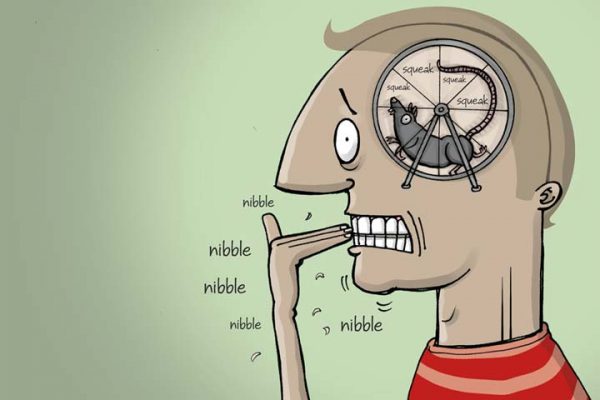Around five million Americans are currently living with age-related dementia. The most common form is Alzheimer’s disease, which is now the sixth leading cause of death in the United States.
Unfortunately, these numbers are only expected to rise. In fact, it’s estimated that by 2060, 14 million Americans will have Alzheimer’s disease.
These kinds of statistics may make it seem hard to avoid the threat of dementia. But, by prioritizing good physical and mental health, you can help to fight this devastating condition.
Read on to find out how to prevent dementia naturally with these eight simple tips.
Table of Contents
1. Exercise Daily
No matter your age nor your fitness level, keeping active is the key to a healthy body and a healthy mind.
Research shows that regular exercise can prevent the progression of cognitive decline and dementia. Even a 30-minute daily walk can help. As long as it gets your heart pumping a little faster, any kind of physical activity is a great way to reverse dementia naturally.
2. Learn Something New
Keeping your brain active is also a must for fighting dementia. Studies show that adults who engage in mentally stimulating activities are less likely to experience mental decline and dementia later in life.
The best way to do this is to challenge yourself to learn new things. This could include studying a foreign language, learning to play a musical instrument, or doing crossword puzzles. Reading more could also help to expand your knowledge and stimulate your mind.
You should also take an interest in what your children or grandchildren are studying at school. Discussing schoolwork is a good way to get your brain thinking about new topics and theories. And, by offering your unique perspective you could even help them improve their grades.
3. Eat a Healthy Diet
The foods you eat also have a huge impact on your brain. A diet rich in vegetables, fruit, healthy fats and lean protein is ideal for giving your brain the nutrients it needs to work its best.
More specifically, experts recommend soy, blueberries, fatty fish, green tea and ginger as part of a healthy dementia prevention diet. That’s because these foods help protect the brain’s glial cells from damage. Experts believe that glial cells help remove the toxins that may play a role in the development of Alzheimer’s.
Make sure to drink plenty of water too. Dehydration is often linked to memory problems, especially in older adults.
And, as well as eating more of the right foods, make an effort to cut out the bad stuff. While the link between sugar and dementia is well-known, it’s wise to cut down on trans fats, red meat, alcohol, and processed foods too.
4. Stay Social
Social isolation and loneliness have a negative effect on physical health and emotional well-being. And, lonely seniors are 64 percent more likely to develop dementia.
Like learning new things, staying social and connecting with people stimulates your mind and keeps your brain active.
In fact, dementia treatment encourages social interaction to help reduce mental decline. And, connecting seniors with lifelike dolls has proved to be an effective therapy for dementia.
To maximize social interaction, volunteer in the community, take a class or join a local group which shares your interests.
5. Aim for Good Quality Sleep
Sleep plays a crucial role in hormone regulation, meaning that it impacts processes such as thinking, memory, and mood. These are all vital in the prevention of brain impairment. As such, try to get eight hours of sleep every night for optimum brain health.
If you have trouble sleeping, try winding down before bed with a book or a warm bath. And make sure your bedroom decor is conducive to good quality sleep.
6. Get Your Vitamins
Researchers have found evidence that vitamin D, also known as the sunshine vitamin, is important for brain health. In fact, vitamin D deficiency is linked to a range of neurological diseases, as well as a higher risk of dementia and Alzheimer’s disease.
B vitamins are also important for optimum brain health, especially folate, B6 and B12. A deficiency in these B vitamins can cause high levels of homocysteine, a common amino acid in the blood. People with high homocysteine have a much higher risk of developing Alzheimer’s disease.
Around 15 percent of Americans are deficient in vitamin B6, while a whopping 75 percent have a vitamin D deficiency. As such, supplements could be the best way to ensure you reach your daily requirements.
7. Reduce Stress
Chronic stress is bad news for your body and mind. Stress leads to hormonal imbalances, causes poor sleep, and can worsen many health conditions. There is also a link between excessive stress and dementia.
As such, making relaxation a priority is essential to preventing or helping to reverse dementia. Effective stress management techniques include deep breathing, spending time in nature, and listening to music.
8. Cut Down on Medications
Many people rely on medications for disease prevention and management. But you should make a conscious effort to cut down on unnecessary medications.
Anticholinergic (AC) medicines are particularly problematic. Patients taking AC medications for longer than two months show an increased risk of cognitive impairment.
A healthy diet, less stress, and regular exercise should ensure good overall health. As such, you might find that certain conditions, such as allergies, insomnia, and depression become easier to control without medications.
How to Prevent Dementia Naturally
When it comes to understanding how to prevent dementia, it’s clear that leading a healthy life is key.
You’re much less likely to develop dementia if you make good health a priority. That means an active mind and body, a good social network, less stress and plenty of sleep.
But, if you ever needed an excuse, a relaxing beach holiday might be just what you need to help you de-stress and give you a boost of vitamin D!











